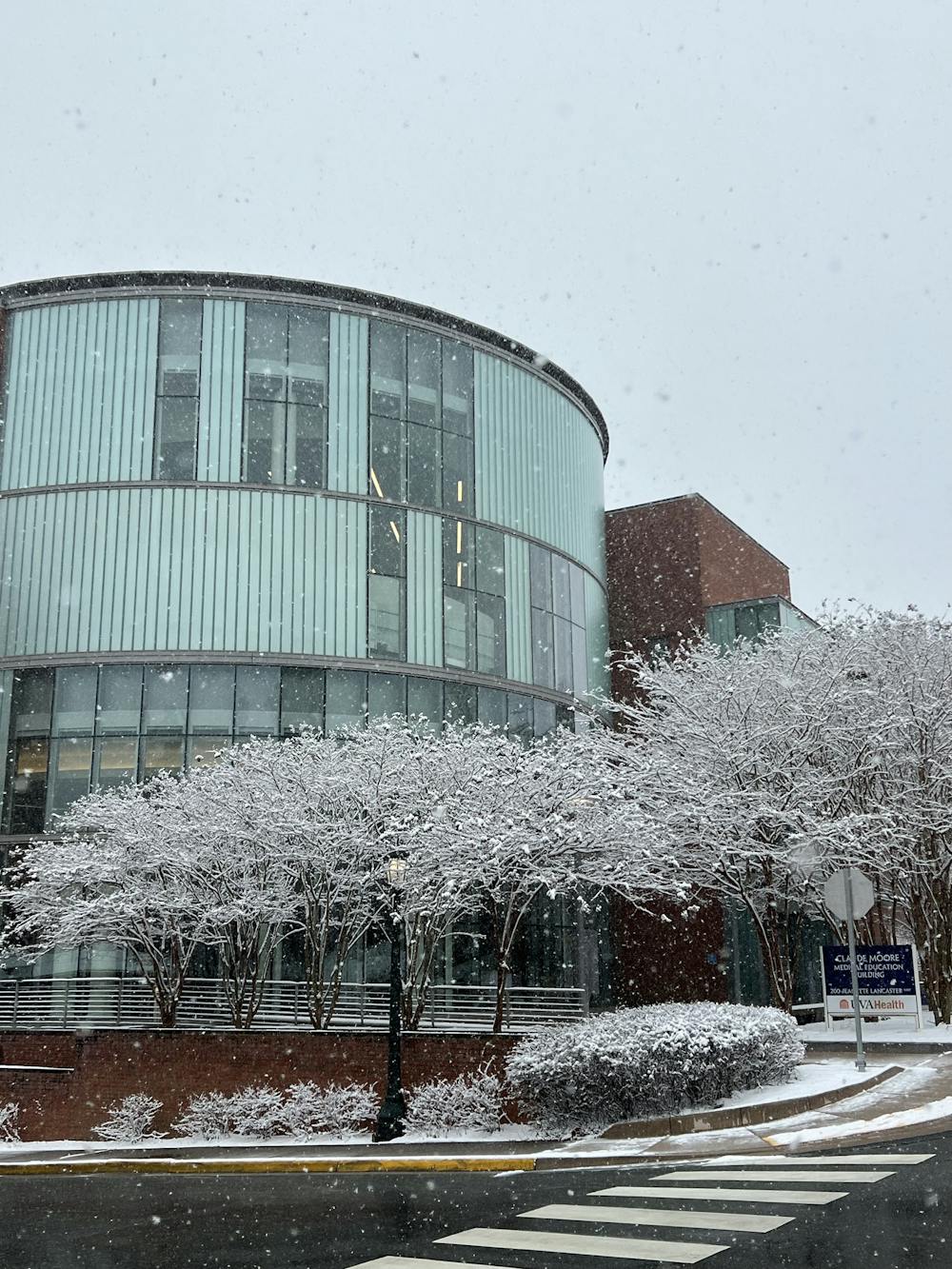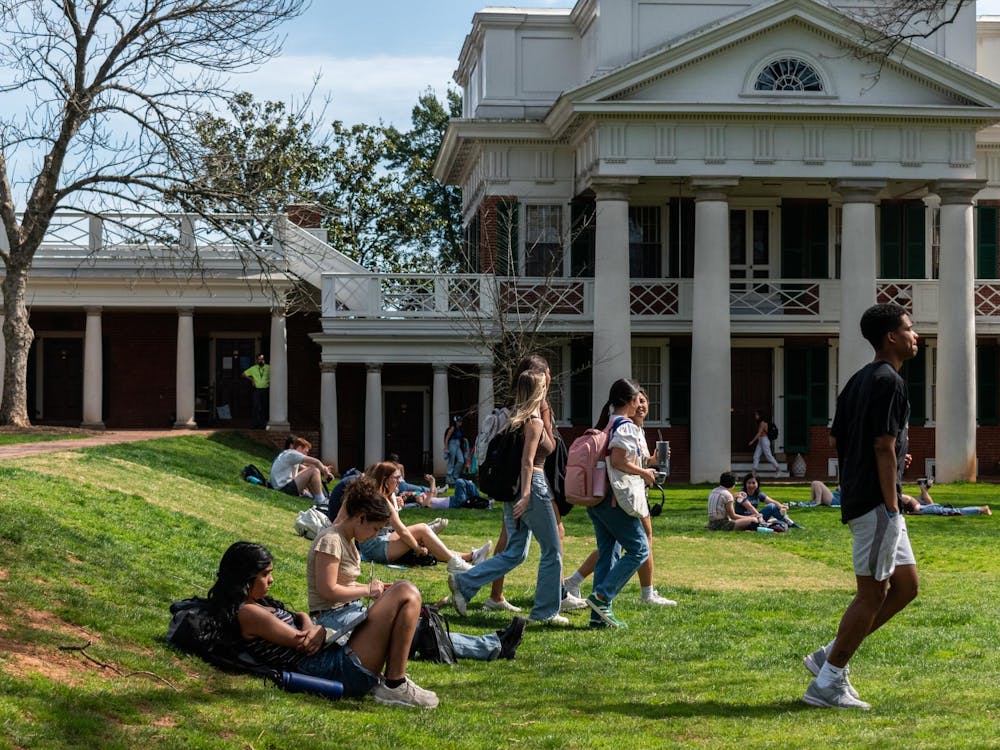On Jan. 31, Virginia became the first state in the nation to direct public institutions to halt gender-affirming care for minors based on President Trump’s executive order. Members of the U.Va. School of Medicine joined our community in protest, standing in defense of the life-saving treatment we know to be the standard of care. The President’s executive order and Virginia Attorney General Jason Miyares’ memo strip our doctors and healthcare institutions of the ability to provide youth gender-affirming care. These directives lie in clear opposition to the official recommendations of national medical bodies like the American Academy of Pediatrics and the American Medical Association. By banning this evidence-based science, our government has chosen politics over patients and put our transgender youth in danger.
As future physicians, we cannot remain silent, especially since U.Va. Health is one of the most comprehensive gender health centers in the country. We recognize the life-saving benefits of gender-affirming care, without which many transgender youth face increased risks for depression, self-harm and suicide. Pediatric gender-affirming care addresses their unique needs by offering developmentally appropriate access to medical, mental health and social services. There is extensive evidence that gender-affirming interventions for youth are associated with improved psychiatric outcomes and reduced odds of suicidality. Moreover, a 2022 article in PLoS One found that those who accessed gender-affirming hormones during adolescence had lower odds of suicidal ideation when compared to accessing hormones in adulthood.
It is important to note that the decision to begin gender-affirming medical therapy is not one which is taken lightly by patients or care providers. Extensive criteria must be met prior to starting hormonal therapy like puberty blockers, as summarized by the Mayo Clinic. Given these strict requirements, access to gender-affirming medical therapy is limited to those who truly need it. Although 1.4 percent of American adolescents identify as transgender or gender diverse, a recent JAMA study found few received puberty blockers, and none under 12 received hormone prescriptions. This demonstrates the robust protocols for hormonal treatment that healthcare providers follow to ensure that the care our pediatric patients receive is medically necessary and that the benefits outweigh any risks.
Similarly, despite significant fear-mongering around the use of gender-affirming surgery (GAS), these procedures are exceedingly rare in minors and never occur in those 12 years or younger. Another common misconception is that GAS is only for transgender individuals. In reality, the term also encompasses procedures like breast reductions for cisgender adolescent boys with gynecomastia. In fact, a 2024 JAMA study comparing the prevalence of GAS in cisgender and transgender minors found that only 3 percent of these surgeries occur in transgender minors, while the remaining 97 percent of equivalent surgeries were in cisgender minors. This highlights a significant disparity — cisgender minors have unobstructed access to gender-affirming care while access to these same treatments is unfairly stripped from transgender minors by political idealogues.
The President’s executive order is based on false claims that providing minors with gender-affirming care is tantamount to physical and psychological mutilation. Proponents of the executive order have referred to the Cass Report, a flawed review of pediatric gender-affirming care research and clinical guidelines. This report recommended that gender-affirming care for minors be paused until more randomized clinical trials can be conducted. However, it is important to note that the Cass Report applies a standard of evidence that is incongruent with ethical guidelines for pediatric care.
A recent article in the New England Journal of Medicine — co-authored by U.Va. School of Law professor Craig Konnoth — further calls into question the validity and applicability of the Cass Report to American medical practice. According to this analysis, the Cass Report would have violated federal law had it been published in the United States, due to its inappropriate deviations from standards of medical research and policy-making. Further study of gender-affirming care in youth and refinement of protocols is always appropriate, but halting all care until it is completely perfect goes against the principles of medicine.
While the legal bounds of the President’s executive order remain unclear, Miyares’ memo to the University. and Virginia Commonwealth University was explicit, explaining that the order is effective immediately and the AG’s office will actively investigate any violations. No other state attorney general in the country has made such a declaration. In contrast, the New York AG filed a directive to hospitals to protect gender-affirming care for minors, reminding them that they have an obligation to comply with NY state law that prohibits discrimination based on protected classes, including gender identity. The Commonwealth of Virginia has a nearly identical policy, the Virginia Human Rights Act. We believe that gender-affirming care for transgender minors must be protected under this legislation.
All children deserve access to care deemed appropriate by their physician and family. The Commonwealth of Virginia currently stands against them. While we are disappointed that U.Va. Health has discontinued youth gender-affirming care, we recognize how the executive order and subsequent memo put them in an impossible position by threatening access to Medicare and Medicaid funding. We urge the University community to reach out to your representatives in Virginia to advocate for access to this life-saving care. We endorse the Human Rights Campaign’s written template, urging your representatives to oppose anti-LGBTQ+ legislation. We encourage the community to register to vote and participate in upcoming elections in November. Your voice and advocacy matter to protect the rights of children in the Commonwealth so that they may access necessary medical care.
Zain Ahmad, Elianna Dunster, Russell Hawes, Kaile Maske, Rachel Rezabek, Ishaan Rischie and Zoe Ziff are medical students at the U.Va. School of Medicine.
The opinions expressed in this column are not necessarily those of The Cavalier Daily. Columns represent the views of the authors alone.






